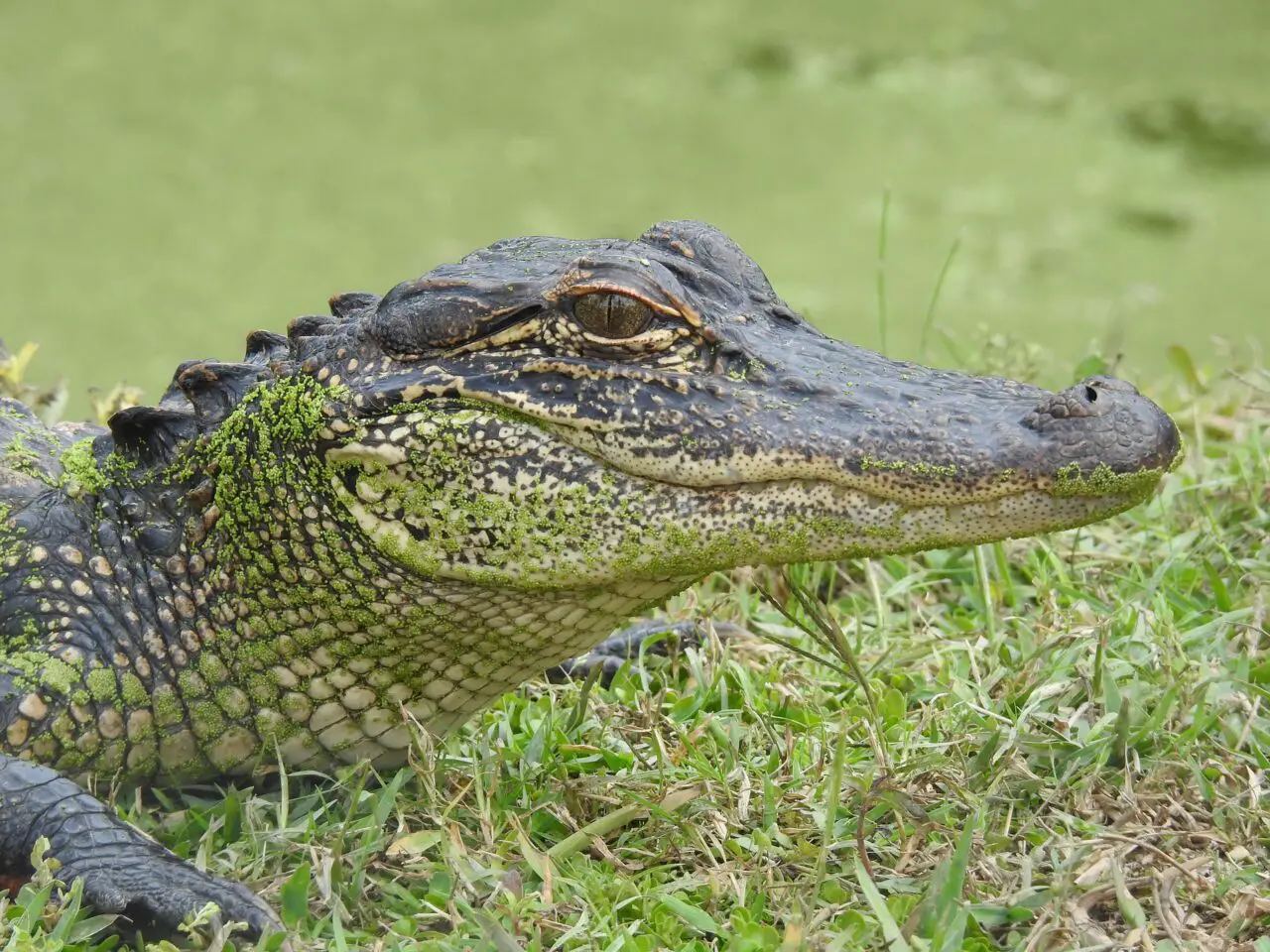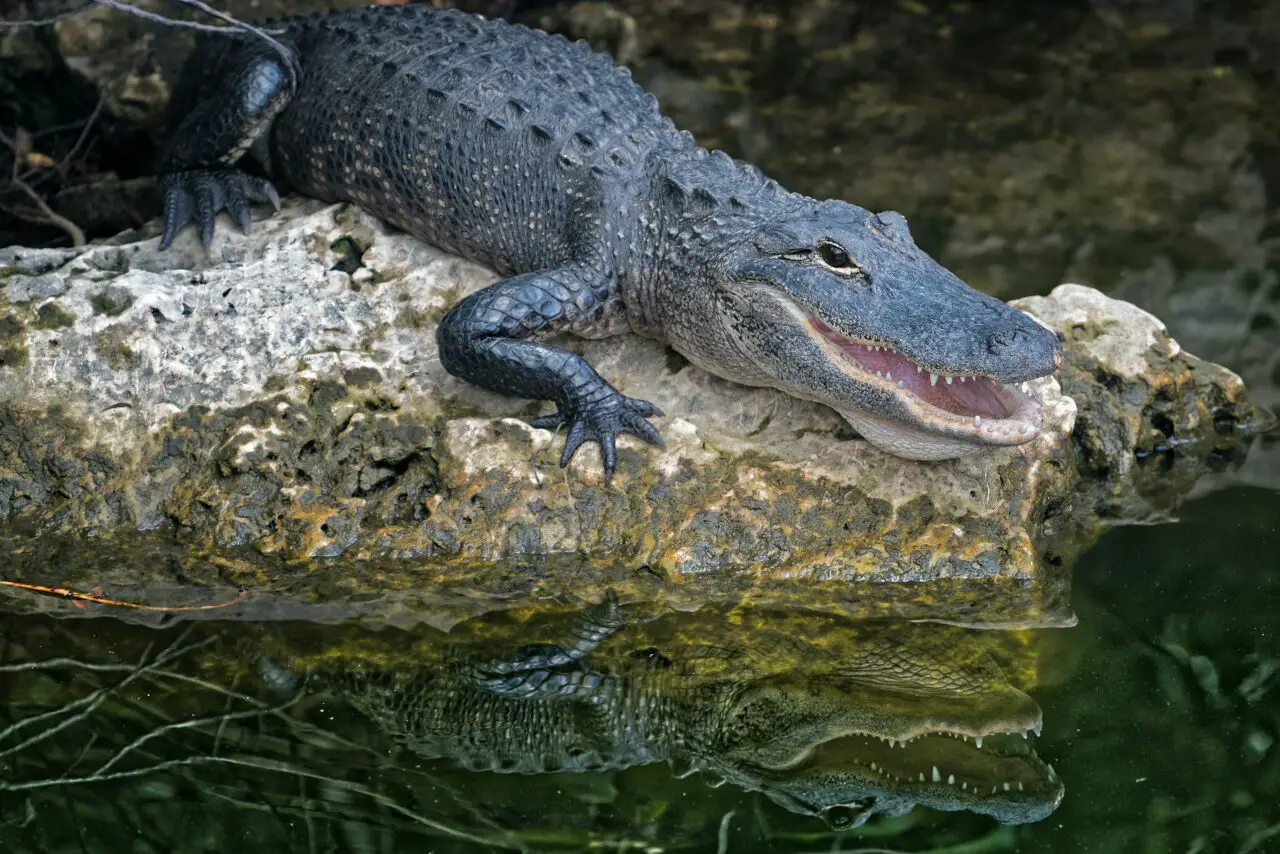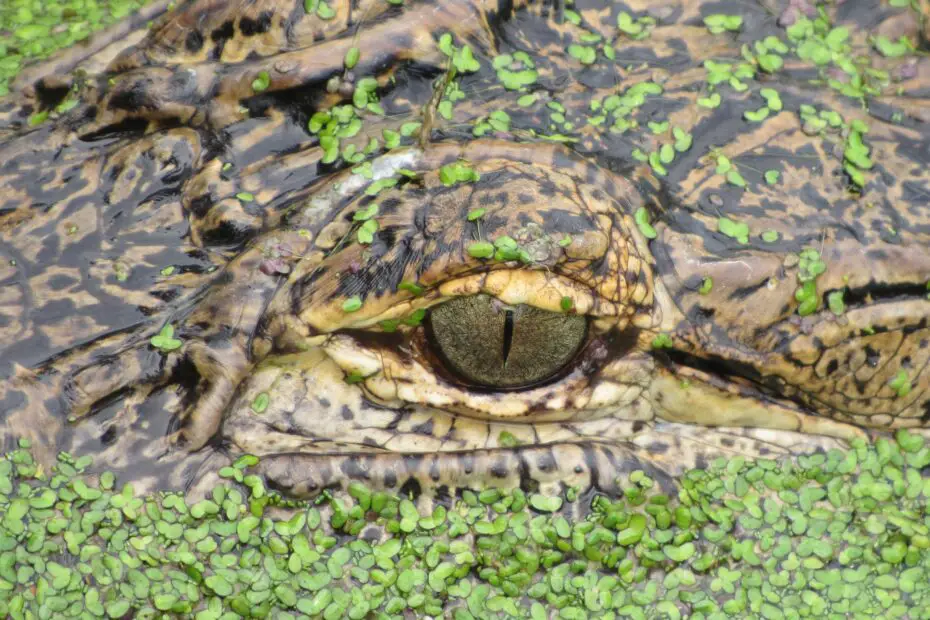How Fast Can an Alligator Run? Alligators, with their prehistoric lineage and formidable presence, are fascinating creatures that inhabit various regions of the world. Known for their powerful jaws and stealthy nature, alligators are often associated with the water. But how fast can they move on land?
In this article, we’ll delve into the world of alligators, exploring their basic characteristics, locomotion capabilities, and their speed both in and out of the water. So, let’s dive in and uncover the truth behind the speed of these ancient reptiles.
You may also want to read about cheetahs.
Alligator Basics
Before we discuss their speed, let’s get familiar with some basic facts about alligators.
Alligator Species
There are two main species of alligators: the American alligator (Alligator mississippiensis) and the Chinese alligator (Alligator sinensis). Both species possess similar physical characteristics and share common behaviors.
Physical Characteristics
Alligators are large reptiles with a muscular body, a broad snout, and powerful jaws lined with sharp teeth. They have a tough, armored skin covered in bony plates called scutes. The size of alligators can vary, with males reaching lengths of up to 13-15 feet (4-4.5 meters) and weighing over 1,000 pounds (450 kilograms), while females are generally smaller.

Alligator Locomotion
Alligators employ different forms of locomotion depending on their surroundings.
Walking and Crawling
On land, alligators primarily use a sprawling walk, where they move their legs to the side rather than lifting them off the ground. This mode of locomotion allows them to navigate various terrains, including muddy surfaces and vegetation-covered areas. Additionally, alligators can crawl on their bellies, dragging themselves forward using their legs and powerful tail muscles.
Swimming
When in water, alligators are highly adapted swimmers. They use their strong tails to propel themselves forward, while their legs are held against their body, providing stability and streamlining their movement. Alligators are known for their stealthy underwater approach, often remaining partially submerged with only their eyes and nostrils above the water surface.
How Fast Can an Alligator Run?
Now, let’s delve into the speed capabilities of alligators.
Maximum Running Speed
How Fast Can an Alligator Run? Alligators are not built for sustained high-speed running on land like some other animals. Their maximum running speed is generally estimated to be around 11-12 miles per hour (18-20 kilometers per hour).
Burst Speed
While alligators may not excel in long-distance running, they can display impressive bursts of speed when necessary. In short sprints, an alligator can reach speeds of up to 20-25 miles per hour (32-40 kilometers per hour) for a brief period. This burst of speed allows them to quickly close the gap between themselves and their prey or escape potential threats.
Factors Affecting Alligator Speed
Several factors can influence the speed of an alligator.
Size and Age
The size and age of an alligator can impact its speed. Larger and older alligators tend to be slower compared to their smaller and younger counterparts. As alligators grow, their size and weight increase, which can affect their agility and speed on land.

Environment and Temperature
The environment and temperature also play a role in alligator speed. Alligators are cold-blooded creatures, meaning their body temperature is influenced by the external environment. In colder temperatures, their movements may be slower compared to warmer conditions. Additionally, the terrain and surface texture can affect their ability to move swiftly on land.
Alligator Hunting Strategies
While speed is not their primary hunting strategy, alligators employ various tactics to capture their prey. They often lie in wait, using their stealth and camouflage to ambush unsuspecting animals that come near the water’s edge. Once within striking distance, alligators use their explosive power and strong jaws to seize and immobilize their prey.
Safety Tips
If you encounter an alligator, it’s essential to prioritize your safety and respect their space. Here are some safety tips to keep in mind:
- Maintain a safe distance from alligators, especially if they are on land.
- Avoid approaching or provoking an alligator.
- Do not swim in areas known to be inhabited by alligators.
- Keep pets on a leash and away from water bodies.
- If you live in an alligator-prone area, be cautious and follow local guidelines and regulations.
Frequently Asked Questions
Q1: How fast can an alligator swim? Alligators are impressive swimmers and can achieve speeds of up to 20 miles per hour (32 kilometers per hour) when swimming.
Q2: Can alligators outrun humans? In short distances, alligators can outrun humans. However, humans have the advantage of endurance and can outrun alligators over long distances.
Q3: Do alligators chase their prey on land? Alligators are more efficient hunters in water, but they can chase prey on land for short distances if necessary.
Q4: Can alligators run in a zigzag pattern? Contrary to popular belief, alligators cannot run in a zigzag pattern. They primarily move in a straight line when running on land.
Q5: How can I stay safe around alligators? To stay safe around alligators, maintain a safe distance, avoid provoking them, and follow local guidelines and regulations in alligator habitats.
Conclusion
Alligators may not be the fastest land animals, but their adaptations and hunting strategies make them formidable predators. Their ability to navigate both land and water showcases their versatility as ancient reptiles. While respecting their natural behaviors and habitats, we can appreciate the remarkable characteristics of these fascinating creatures. So, the next time you encounter an alligator, remember to marvel at their unique attributes from a safe distance.
